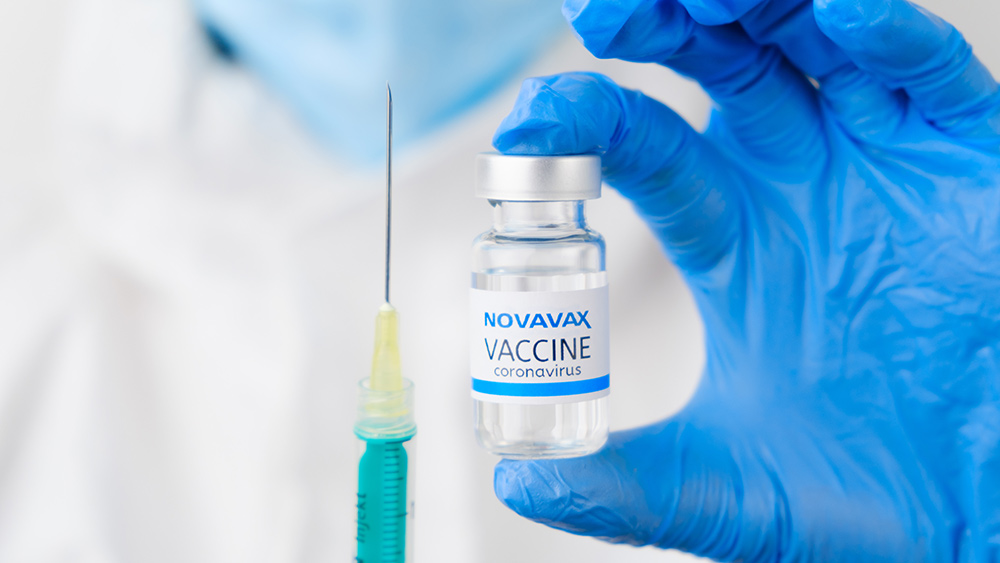Data audit shows devastating effects of UK lockdown
11/18/2020 / By Virgilio Marin

A recent data audit revealed an increase in deaths, rates of depression and anxiety, hotline calls for domestic abuse and the number of postponed treatments in the U.K. after it went on lockdown early this year. Local media outlet the Daily Mail collated data from over 130 studies conducted by academic and government institutions and charities to arrive at these staggering figures.
The results also highlight the challenges the country faces even as the pandemic ends: Experts say that it will take years for its National Health Service to clear up treatment backlogs. They also note that efforts to shore up health services may be too late for thousands of patients and underscored the need to re-strategize the way the pandemic is being handled.
Lockdown devastating for children, sick people
Prime Minister Boris Johnson placed the U.K. on its first lockdown in March, following an uptick in COVID-19 cases in the country. While the decision was welcomed at the time, it’s only now that the actual side effects are coming to light.
Children and those with preexisting conditions were hit hardest by the effects of the lockdown. A recent report by the Royal College of Pediatrics and Child Health revealed that 50,000 children in need of surgery weren’t able to have their operations between March and May. In addition, nearly a third of healthcare providers encountered child patients whose treatments have been delayed. In nine cases where the child died, the delay was considered a factor for the child’s death.
The National Society for the Prevention of Cruelty to Children, a British charity campaigning to end child abuse, also reported an increase in calls during the lockdown, while calls to Refuge, a charity for women and children experiencing domestic violence, was almost 50 percent higher than the average number of calls before the lockdown. (Related: Coronavirus pandemic linked to increase in “anger and confrontation” among family and friends.)
Lockdowns also took a toll on mental health
The lockdown also had a severe impact on mental health and drug and alcohol addiction. The U.K. Office of National Statistics (ONS) reported that depression rates across all ages and genders went up by 50 percent during the lockdown. Meanwhile, research shows that 18 percent of British adults reported considering suicide in the first month of the lockdown.
The charity organization Action on Addiction said that around 40 percent of British patients recovering from drug or alcohol addiction are likely to suffer a relapse.
Stroke, heart attack and cancer patients were also at the receiving end of the lockdown’s lethal blow. One study found that the number of deaths due to a heart attack and stroke increased by eight percent, and the number of people treated for stroke fell by 45 percent.
“The sad irony is that heart attack services remained fully operational… during the peak of the pandemic,” said cardiologist Chris Gale of the University of Leeds, who co-authored the study.
Another paper found that the daily average count of organ transplants fell from 11.6 to 3.1. The number of people who died waiting for transplant surgery increased from 47 in the same period of time last year to 87 during the lockdown.
Meanwhile, endoscopies for bowel cancer were just 12 percent of the pre-lockdown average. According to a study, delays in bowel cancer diagnosis will likely lead to between 650 and 2,250 excess deaths in the U.K.
Another study showed that delayed treatment for breast, lung and esophageal cancer will likely cause an additional 2,000 deaths related to these diseases. Urgent referrals for early cancer diagnosis were also down by up to 89 percent from last year. This, in turn, is projected to lead to more than 6,200 extra deaths in the first year after the pandemic.
Oncologist Patricia Price of Imperial College London said that these figures demonstrate the U.K. government’s failure to address treatment backlogs. She added that while the figures cover multiple health conditions, the effects of the lockdown were exceptionally dire on cancer patients. (Related: It’s now looking like the lockdowns may have been a huge mistake.)
“This is the worst cancer crisis I have seen in my 30-year career,” Price said. She added that restoring health services to pre-COVID-19 levels will not be enough to clear the backlogs.
“[We] need a super-boost to services,” Price said. “Otherwise, thousands of patients will die at home without access to the Health Service and the care they need.”
Accident and emergency visits also fell from more than 80,000 a week to just over 40,000 during the lockdown, according to the Health Foundation in the U.K.
Deaths at home rose by 100 a day
According to a report by the ONS, the daily number of people dying at home soared from 300 to 400 since the start of the pandemic. The number of deaths from December last year to September this year went up by 25,000 compared to the same time during the past five years. Only 2,350 of these casualties were related to COVID-19. The rest were caused by diseases like heart disease, prostate cancer, dementia and Alzheimer’s disease.
“It is unclear how many of these lives could have been extended had they gone to [the] hospital,” said statistician David Spiegelhalter of Cambridge University, who did not contribute to the report.
Spiegelhalter said that deaths at home increased either because services were disrupted or older and more vulnerable people were reluctant to go to the hospital or discouraged from seeking hospital treatment.
Jeremy Hunt, the chairman of the House of Commons health committee, called on the government to buttress health services and said that the mistakes of the first lockdown cannot be repeated. (Related: Europe gearing up for another lockdown as new COVID-19 infections soar.)
“The last lockdown was devastating for cancer sufferers and we now know led to thousands of avoidable deaths,” Hunt said. “Whatever course of action ministers opt for now, it is simply unconscionable for the NHS to become a COVID-only service.”
The analysis comes just as a second national lockdown was announced four months after the end of the first nationwide shutdown. The new restrictions came into effect on Nov. 5 and are set to last Dec. 2.
Pandemic.news has more on the ongoing Wuhan coronavirus pandemic.
Sources include:
Submit a correction >>
Tagged Under:
alcohol addiction, cancer, covid-19, depression, domestic abuse, drug addiction, heart disease, heart health, infections, lockdown, mental health, outbreak, pandemic, suicide, Wuhan coronavirus
This article may contain statements that reflect the opinion of the author
RECENT NEWS & ARTICLES
HeartDisease.News is a fact-based public education website published by Heart Disease News Features, LLC.
All content copyright © 2018 by Heart Disease News Features, LLC.
Contact Us with Tips or Corrections
All trademarks, registered trademarks and servicemarks mentioned on this site are the property of their respective owners.





















